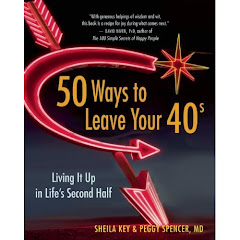Dear Doctor Peg,
I’m freaking out. I went to a great party last night, and had a fantastic time, but, well, I guess I had too much to drink, and there was this really attractive person, and one thing led to another, and we had sex. We didn’t use protection. This morning I’m sober, I have a roaring headache, I feel like an idiot, and I’m terrified. What have I done? What could happen to me? I can’t believe I did that. I’m never having sex again!
Dear Scared,
What have you done, you ask? You made some choices that put your health at risk. You are clearly regretting this as you look back with the clarity of hindsight. What could happen to you? That depends on a few things.
If you are Scared Susie, you’ll be worrying about disease and pregnancy (unless you had sex with a woman, in which case you’ll still be worrying about disease). If you are Scared Sam, it’s the possibility of disease that’s making your headache worse. Let’s take these issues one at a time.
Pregnancy. For pregnancy prevention, come to the
STI’s. This is the new and improved acronym for Sexually Transmitted Infections (formerly ST Diseases). There are several. For practical purposes, I’m going to divide them into two categories, curable and incurable.
Curable STI’s. These are infections that can be cured with antibiotics, after which they are gone from your body for good, unless you catch them again. Please note that most of these can be “silent,” meaning you can have them and not know it. We can find them for you, though, with blood, urine or swab tests. When they do cause symptoms, they are typically as follows. Trichomonas, or “trich” (pronounced “trick”) is a parasite that can cause an itchy, smelly, greenish discharge from the penis or vagina. Chlamydia is a bacterium that can cause burning with urination, a penile or vaginal discharge, painful sex or vaginal bleeding. We see several cases of Chlamydia at Student Health every year, especially after Spring Break. GonorrheaPubic lice (“crabs”) cause severe itching and rash in the pubic area. If you look closely, you might be able to see the lice themselves or their egg cases on your pubic hair. Crabs are treated topically with a cream or liquid. Molluscum contagiosum virus causes bumps that look and feel like hard pimples. Removing the core of each lesion, which we do in the clinic, helps the infection clear up more quickly. (“the drip”) causes a goopy, yellow discharge from the penis or vagina.
Incurable STI’s. For this group of infections, modern medicine has no cure. We can give you drugs to make you feel better, or to decrease the intensity and duration of your symptoms, but we can’t kill the viruses. Herpes causes exquisitely tender sores, in your mouth or on your genitals. Human Papilloma Virus (HPV) causes warts on your genitals, and some strains can cause cancer of the cervix. The good news about HPV is that there is now a vaccine that will protect you from the most dangerous strains. If you get genital warts, we’ll freeze them off, but unfortunately that doesn’t get rid of the virus, which usually lives about two more years under your skin. Hepatitis B, for which there is also a vaccine, can be silent or cause an illness with nausea, fever and bodyaches. And finally, HIV, which has a variety of symptom presentations and for which there is no known cure at this time.
I know that is quite the parade of scoundrels, and I’ve probably scared you worse by listing them all. However, chances are very slim that you’d have more than one or two of these after your wild escapade last night, and it’s likely that you don’t have any of them. The problem is, it can take weeks to months for these infections to show up in your body after you catch them.
So how long should you wait to be seen by a health professional? If you’re Susie, don’t wait for pregnancy prevention. Anyone else, make an appointment for “STI Screeing” with one of the SHC practitioners or the Women’s Health department. We will listen to you, examine you, educate you, and advise you. We might do labwork to find out if you’re positive for any of these STI’s now. We can tell you when to come back and get tested the next time. If you develop symptoms before your scheduled visit, come to the Walk-In clinic or make another appointment to be checked.
Finally, go easy on yourself. Everyone makes mistakes. Everyone does stupid things. You don’t have to swear off sex forever, or brand a big L for Loser on your forehead. Just take steps to be healthy now, and in the future, if you choose to have sex with a stranger, please, protect yourself.





